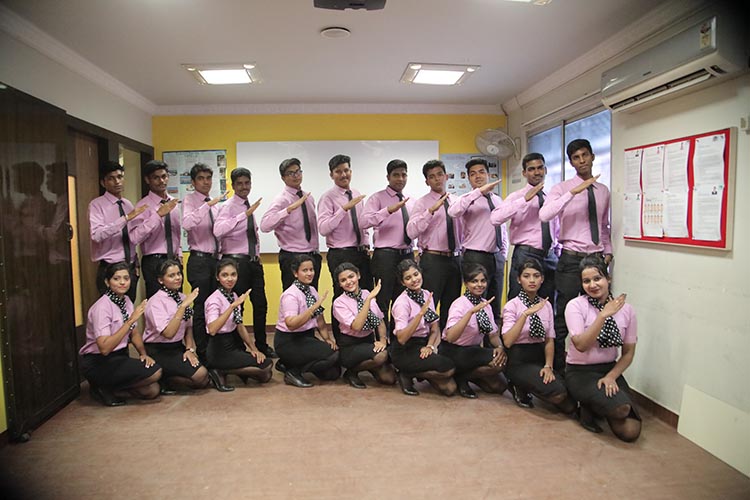How Artificial Intelligence is changing Aviation Industry
August 20,2020

Introduction:
Artificial Intelligence coined in the late 1970’s, the concept never took off because of low numbers of data. After the internet evolution, companies like google, facebook, amazon integrated Artificial Intelligence into their process.
In a recent survey, 75% of small industries are focusing on implementing artificial intelligence in their process. And next decade revolution is in the hands of AI.
Since we are in the Aviation Sector, we all have this question in mind. How AI is going to turn around the Aviation industry and Why we need AI in Aviation.
In simple terms, artificial intelligence will reduce human effort and help to achieve high accuracy. The Aviation Industry is continuously growing at a fast pace. In 2036 aviation industry is projected to create 15 million jobs and will provide $1.5 trillion in the world economy.
Here are the ways how AI will help Aviation Industry
Virtual Assistant:
Artificial Intelligence based Virtual Assistant will reduce the work of the pilot and crew members by taking over the repetitive tasks. Some of the tasks are Changing Radio Channels, reading wind forecasts and providing position information to passengers and radio controls.
Virtual assistants will help the airline operators customer service as well. These AI based Virtual assistants can answer simple questions. Some of the common questions handled by customer care professionals are Flight Status, Basic Queries and with the help of the application they can suggest details on renting a car, booking a hotel etc. This can reduce tons of human resources cost for airline operators.
Advanced AI Tools to Monitor Aircraft:
The Ultimate goal of an A.I Algorithm is to predict the future. With the help of AI tools, the airline operator can predict maintenance hours, refilling fuel and wear & tear. Some of the places where these AI based tools can be used are Aircraft Digital Systems, Braking, Valve Engines, Generators & avionics as well.
Based on the maintenance log artificial intelligence can analyse millions of data and predict the equipment failure to reduce accidents.
In 2019, the fatalities in the airline industry increased to 50% which is higher than any other industry. With the help of Artificial Intelligence airline operators can predict the machine fault and reduce the fatality accidents and save thousand lives.
AI Customer Support Chatbots:
The usage of chatbots in the aviation industry is seeing decent growth in chatbots usage. The reason behind the chatbots is to satisfy travellers without any time delay. At the same time chatbots can replace human agents.
Around 4.72 billion passengers worldwide travel via the air and airline industry working tremendously to satisfy these customers. Artificial intelligence based chatbots can answer the customers’ query in an efficient way. Every airline operator has already created facebook chatbot because of continuous increase in air travel. As per the SITA report 68% of the airline industry already implemented Artificial Intelligence support chatbots.
Ticketing Systems:
The most complicated ticketing system in the whole world is tickets from the airline industry. Mostly the ticket prices are fixed based on the oil prices, flight distance, purchase date, seasonality and the brand value.
But the prices of oil change on a daily basis, so the airline industry must use different pricing strategies for different trips. Artificial intelligence algorithms can make this job very easy than using the human brain. Based on the past data, these algorithms can predict the future pricing. Airline industry is completely focusing on implementing these concepts in ticketing systems.
Bag Dropping Kiosk:
Delta airlines have already created a kiosk “self bag drop machines” total cost was around $6,00,000. The kiosk will have a built in camera which takes photos and identifies passengers using an artificial image screening algorithm.
This helps the passengers to get their luggages without any trouble. Pune International airport installed “Baggage Screening Systems” to have tight security. The artificial intelligence screening camerage will screen the luggage, these algorithms will give notification to security guards incase of any vulnerable product witnessed
Great Customer Service:
Most of the airline operators have already collaborated with Alexa, Google Assistant to provide great customer support to their passengers. With a simple voice command from the users can give the live updates of the flight timing and specification as well.
The ultimate goal of an airline operator is to provide excellent customer service. And most of the passengers come from professionals and high profile business owners.
Air Traffic Control Communication:
The most crucial part in the airline industry is the Air Traffic Control communication, even a single grain of mistake can result in a fatal accident. History holds many of these kinds of fatal accidents.
Language plays a prominent role, when you communicate with international air transport. The language of communication is English but the accent varies from country to country. Say for example an indian pilot communication accent will be totally different from the UK and USA.
Artificial intelligence Voice Over can sort out communication barriers in common machine speaking language, which is easy to understand for every human. ATC communication is always noisy and its hard to understand and transcript it.
Airbus innovated a new AI – Gym algorithm to transfer these voice recording & transcript without any noise to the controller room.
Conclusion:
Artificial intelligence is growing in a tremendous percentage. AI is not only used in the Aviation industry, the implementation of AI taking position in every segment. From Manufacturing to healthcare sector. Who knows in the near future there is a chance that a complete aircraft can be operated only by AI robots. In present we have self driving cars and trucks, so the possibility of automated Aircraft is possible.
In 2018 the AI in the aviation industry holds only $155 million but in 2020 the market size exponentially increased to $2,223 million. There are high chances that it can attain a Trillion dollar valuation in future.